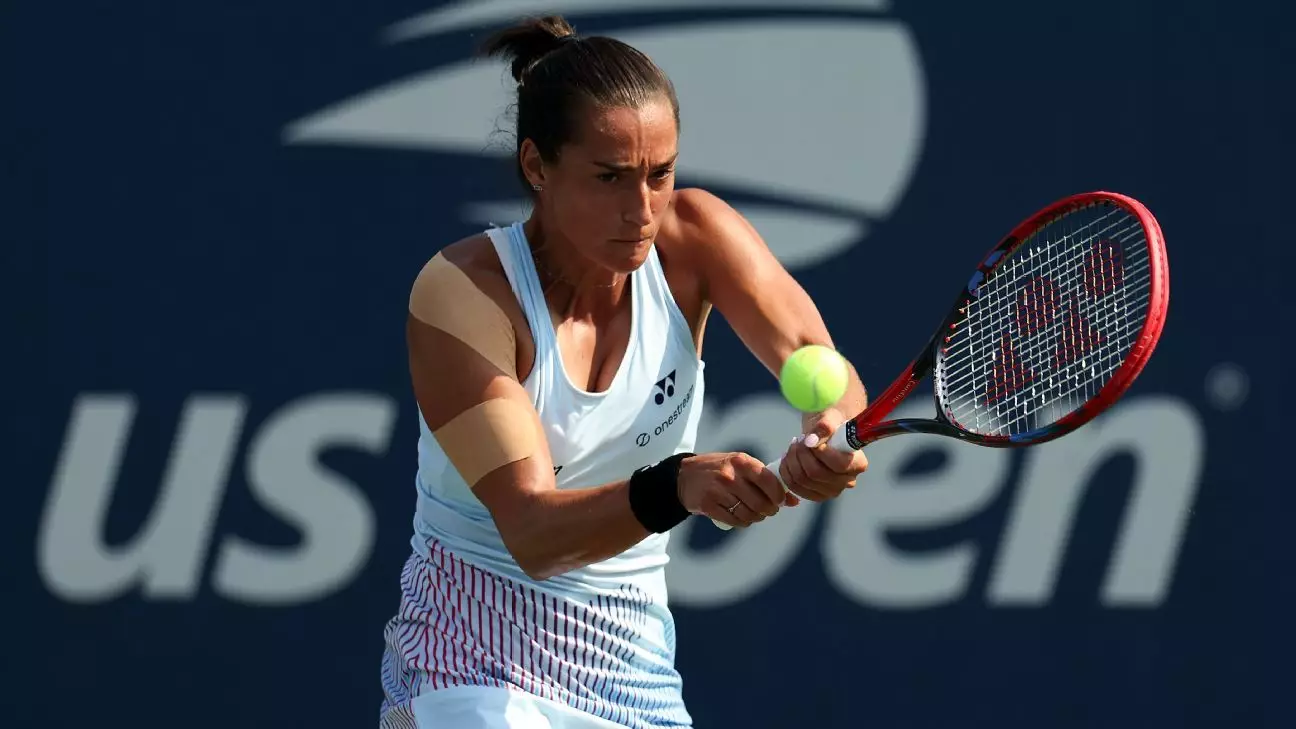Caroline Garcia, the former world No. 4 and a beacon of hope for French tennis, has once again faced a significant hurdle in her career. With her recent withdrawal from the Madrid Open due to a nagging back issue, the tennis world is left questioning her fitness and readiness ahead of one of the most prestigious tournaments: Roland Garros. Through her heartfelt announcement on social media, Garcia revealed the necessity of prioritizing her health and undergoing treatment. This decision, while undoubtedly disappointing for her fans, showcases a level of maturity and self-preservation that many athletes struggle to embrace.
Building Anticipation for Roland Garros
The French Open is not just another tournament for Garcia; it represents a profound opportunity to fulfill her dreams of becoming a Grand Slam champion on home soil. Having reached the quarterfinals multiple times but never progressing further, the pressure mounts each year as she is perceived as a national favorite. Her candid acknowledgment of the physical and mental toll the sport takes on her underscores her vulnerability, particularly in light of her challenges last season when she stepped away due to anxiety and panic attacks. Garcia’s narrative is not just about her athletic prowess but also about the complexities of mental health in sports—a topic that is finally gaining the attention it deserves.
Pushing Through the Pain
Garcia’s commitment to returning strong, as expressed in her social media posts, highlights a fundamental tenet of sports: resilience. After experiencing a disappointing early exit in both Indian Wells and Miami, she faced further disappointment by having to skip the Rouen Open. Yet, her response reveals an incredible mindset. The focus is not just on immediate results but on the long game, emphasizing the importance of mental clarity alongside physical recovery. “Even on the hard days,” she stated, “it’s about embracing the journey,” a sentiment that resonates deeply in the realm of competitive athletics.
The Role of Mental Fortitude in Sports
The pressure to perform can become overwhelming, especially for athletes like Garcia who embody their nation’s hopes and expectations. The willingness to take a step back from competition to address personal health issues illuminates Garcia’s strength, even amidst her struggles. Rather than succumbing to the surrounding noise of criticism or doubt, she chooses a path of self-care and reflection, illustrating that the road to success is often marred by obstacles. This honesty about her trials can serve as a beacon for aspiring athletes, paving the way for a more empathetic culture surrounding mental health in sports.
A Community Rallying Behind Her
The tennis community has a rich history of supporting its athletes through trials. As Garcia navigates her recovery, fans and fellow players alike are likely to rally behind her, cheering for her return not just on the courts of Madrid or Rome, but ultimately at Roland Garros. Her journey is not solely her own; it encapsulates the hopes of a nation yearning for a champion while inspiring others facing their own trials. At its core, Garcia’s situation transcends tennis—it signifies a universal message about resilience, recovery, and dreaming big, regardless of the setbacks encountered along the way.
Garcia’s story is a testament to the complexities of competitive sports, where physical prowess must be balanced with emotional well-being, making her a relatable figure in the narrative of modern athletics.


Leave a Reply